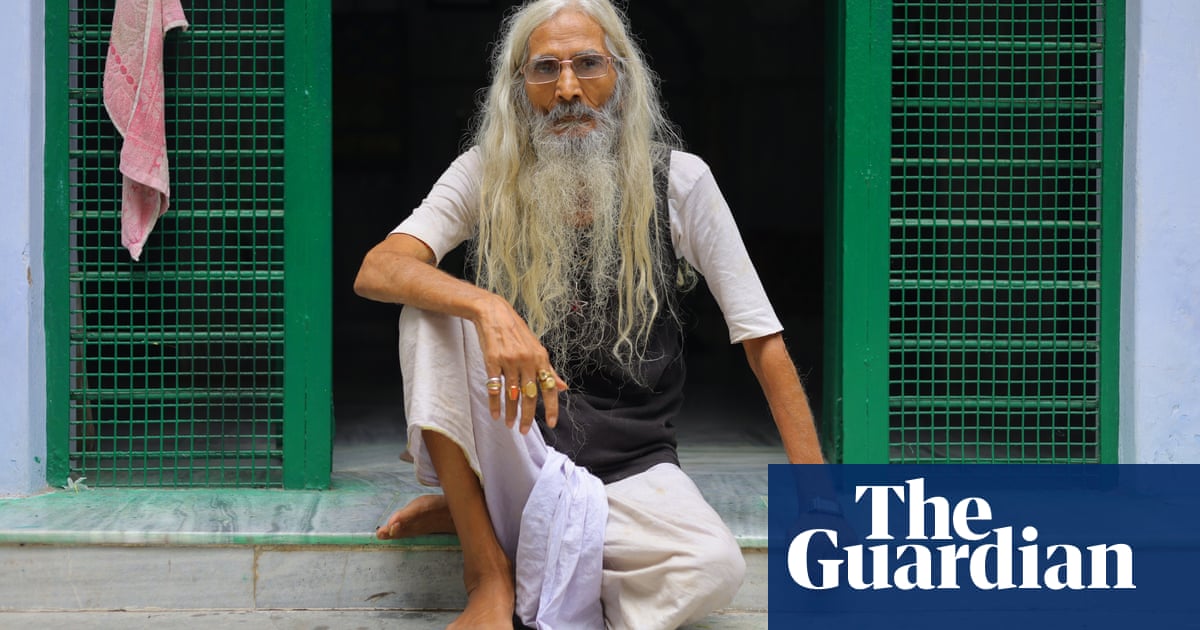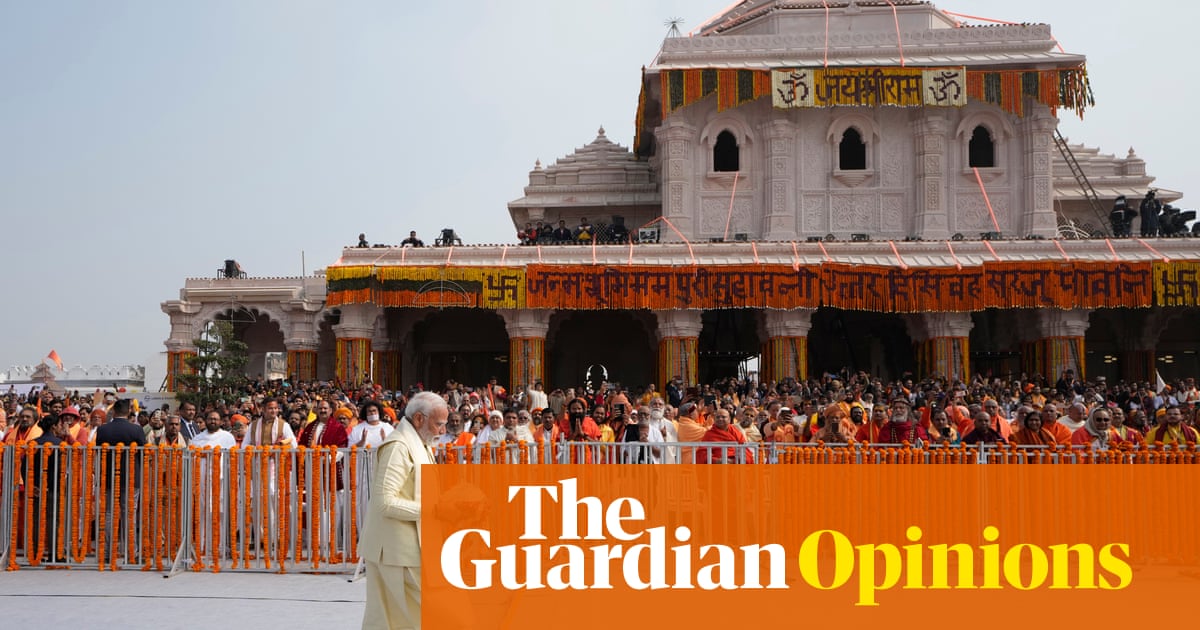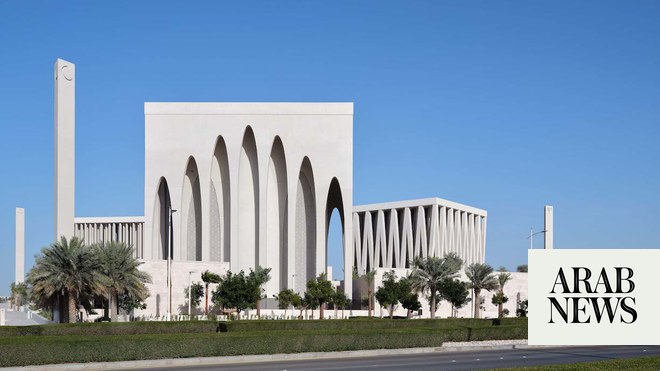
In the heart of Varanasi, where the sacred Ganges meanders by and incense smoke mingles with the faint echoes of prayers from a myriad of temples, Bechan Baba sits at the entrance of the Anarwali mosque. A silent sentinel, the 72-year-old Hindu caretaker leans back on weathered stones that were laid almost 400 years ago.
Bechan has dedicated his working life to the service of this ancient mosque, which represents a sense of unity in a city wrestling with historical disputes.
He picks up a weathered broom and regards the edifice that has been his sanctuary and his duty for more than four decades.
“I’ve been here for 45 years, taking care of this mosque. People from both Hindu and Muslim communities come here, offering prayers and worship,” he says.
“My father used to be here, and after him, I took on the responsibility. I’ve been here since my childhood.”
Varanasi, an ancient city about 500 miles south-east of India’s capital, Delhi, and often considered the nation’s spiritual centre, has been tense in the past few months following a legal dispute between Hindus and Muslims over the ownership of the Gyanvapi mosque, built by Emperor Aurangzeb in the 17th century. A court has ruled that Hindus can worship inside the mosque, after dozens of legal petitions were made claiming it was the site of an ancient Hindu temple.
The controversy is reminiscent of the longstanding and occasionally violent dispute between Hindus and Muslims in the nearby city of Ayodhya over religious rights to the Ram temple, something only resolved by a supreme court judgment in 2019.
For Bechan, the years of religious disputes only further the importance of his role. “What if I am a Hindu? I will continue to serve the mosque. What else will I do?”
“I don’t have anything to do with what is going on there [Gyanvapi]. I live here, and I don’t let anything happen here,” he says.
He points out the neighbouring Gopal temple, emphasising the coexistence of the two places of worship. “There is no environment of hate or anything like that. People from both the Hindu and Muslim communities come here, and there have never been any riots during my time,” he says.
Bechan’s only wish is to serve the mosque until his death.
“I don’t go to my home. My children bring me food in the morning. I stay here throughout the day, finding comfort in this space. My children live at home,” he says.
Visitors to the mosque have increased dramatically under Bechan’s regime. “All the prayers of all five times are held here,” he says. “During my father’s time, there was not so much population and people didn’t come here. But now there are many houses, the population has increased, and a lot of people keep coming here,” he says.
People from different faiths come to the mosque to pray he says, making it a powerful symbol of coexistence in a country riven by religious tensions. “See, the Muslim brothers are coming, and now they will offer their namaz [prayers]. They will go to the shrine. They will offer flowers. Hindus will also pay their respects. Both come and go,” he says.











